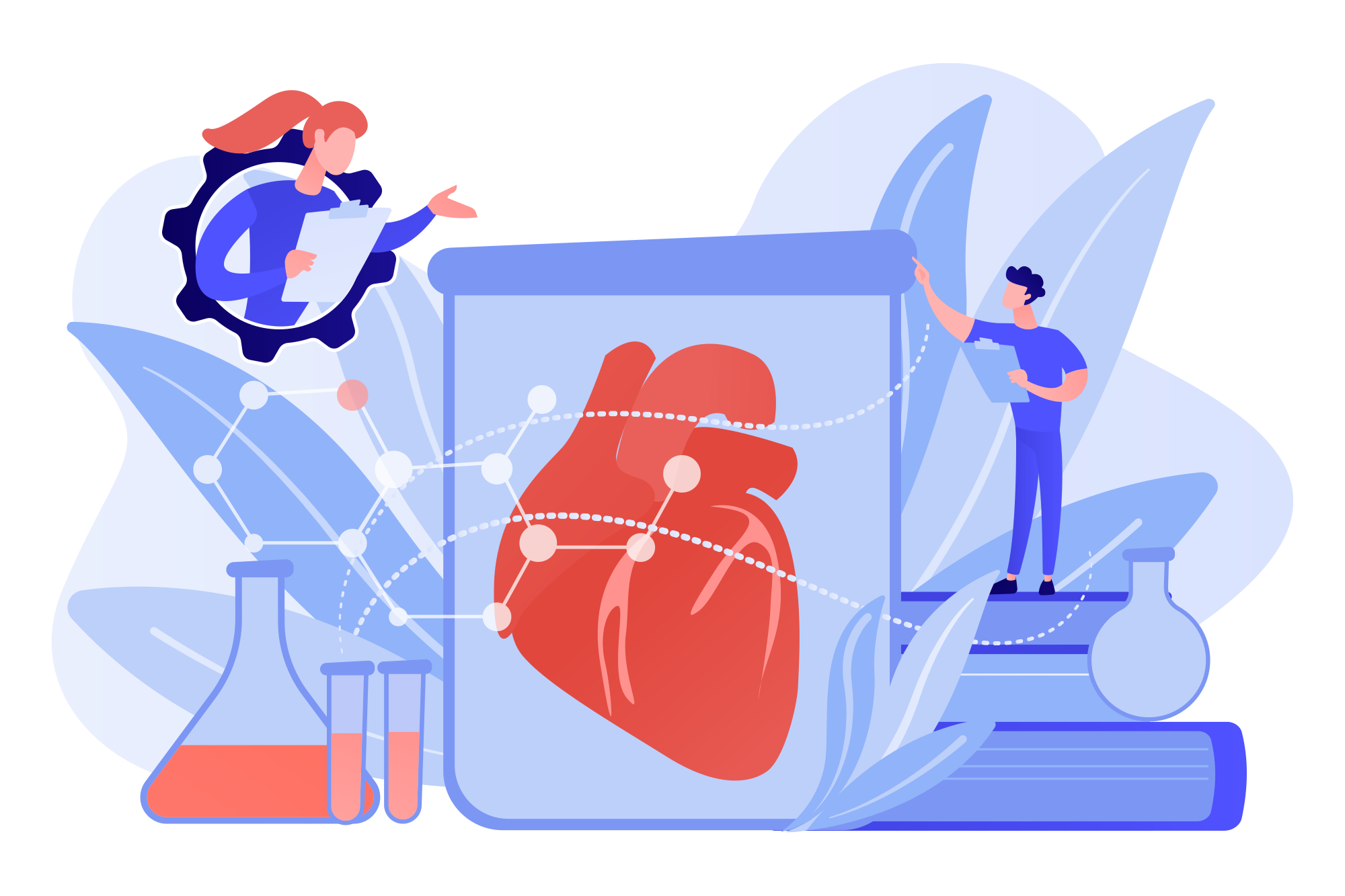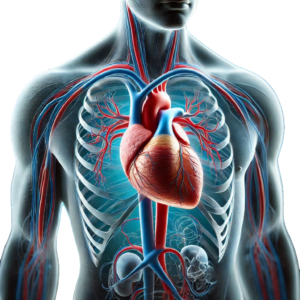This Course Structure is Curated as per the NEP-2020 Guidelines
Course Overview
B.Sc. Electro-Physiology (EP) Technology program at Malla Reddy Vishwavidyapeeth, Hyderabad, is an undergraduate course designed to train students to assist cardiologists in diagnosing and treating heart rhythm disorders through advanced electrophysiological studies.
This program focuses on equipping students with the theoretical knowledge and hands-on skills from 1st semester itself. The curriculum provides a comprehensive understanding of the cardiac conduction system, arrhythmias, and therapeutic interventions. Students are trained in invasive and non-invasive electrophysiological techniques, including cardiac mapping, ablation procedures, and pacemaker implantation, ensuring they are prepared to support complex cardiac care. The program blends practical training with theoretical concepts, emphasizing the operation of advanced equipment such as electrocardiographs, Holter monitors, and intracardiac electrophysiology recording systems. Students gain expertise in hemodynamic monitoring, emergency response during procedures, and ensuring patient safety and comfort throughout.
Graduates of this program emerge as proficient Electro-Physiology Technologists, enabling them to pursue further higher studies & do research in Electro-Physiology Technologists along with plenty of job opportunities globally.

Course Details
Description: 4 Years Degree Program
No. of Seats: 40
No. of Credits: 160 minimum & as specified
- Eligibility
- Curriculum Structure
- Program Outcomes
- Career Enhancement
- Higher Studies
- Job Roles & Progression
The minimum eligibility for B.Sc. Electro-Physiology (EP) Technology is a pass in 10+2 with at least 50% in Physics, Chemistry and Biology from a recognized board (CBSE/ISC) or equivalent.
| Semester | Name of the Subject |
| Semester 1 | Anatomy – I Physiology – I Biochemistry – I Fundamentals of Electrophysiology Practical: Cardiovascular Anatomy and Physiology English & Communication Skills Computer Applications |
| Semester 2 | Anatomy – II Physiology – II Pathology and Microbiology Basics of Cardiac Instrumentation Practical: Instrumentation and Pathology |
| Semester 3 | Electrocardiography (ECG) Introduction to Cardiac Arrhythmias Basics of Electrophysiology Pharmacology in Cardiac Rhythm Management Practical: ECG and Cardiac Rhythm Analysis |
| Semester 4 | Advanced Electrophysiology Studies Cardiac Ablation Procedures Research Methodology and Biostatistics Pacemaker and Defibrillator Technologies Practical: EP Studies and Device Management |
| Semester 5 | Non-Invasive Electrophysiology Diagnostics Mapping Techniques in Electrophysiology Pediatric Electrophysiology Quality Assurance in EP Technology Practical: Non-Invasive EP and Mapping Techniques |
| Semester 6 | Invasive Electrophysiology Techniques Advances in Cardiac Rhythm Devices Emergency Management in EP Labs Practical: Advanced EP Techniques |
| Semester 7 | Invasive Electrophysiology Techniques Advances in Cardiac Rhythm Devices Emergency Management in EP Labs Practical: Advanced EP Techniques |
| Semester 8 | Advanced Internship Thesis/Research Project Entrepreneurship in EP Technology Practical: Clinical Operations in EP Labs |
- Electrophysiology Studies (EPS): Skills in performing and interpreting invasive EP studies to evaluate cardiac arrhythmias.
- Advanced Device Management: Proficiency in handling pacemakers, ICDs (Implantable Cardioverter Defibrillators), and CRT (Cardiac Resynchronization Therapy) devices.
- Mapping Techniques: Expertise in electrophysiological mapping systems for precise localization of arrhythmias.
- Emergency Rhythm Management: Training in managing cardiac emergencies like arrhythmias and device failures.
- Non-Invasive and Invasive Diagnostics: Competence in advanced EP diagnostics and rhythm monitoring technologies.
- Patient Care and Communication: Skills in managing pre-procedure and post-procedure patient care.
- Certification in Advanced EP Studies: Specialized training in invasive and non-invasive electrophysiology techniques.
- Pacemaker and ICD Management Certification: Focuses on device implantation, programming, and follow-up care.
- Cardiac Mapping Certification: Covers advanced techniques in arrhythmia mapping and ablation procedures.
- Emergency Cardiac Rhythm Management Certification: Training in managing acute arrhythmias and device-related emergencies.
- Pediatric EP Certification: Focuses on the management of electrophysiological conditions in pediatric patients.
- M.Sc. in Electrophysiology or Cardiovascular Technology
- Postgraduate Diploma in Cardiac Rhythm Device Management
- Master’s in Cardiac Rehabilitation
- Ph.D. in Electrophysiology
| Duration | Roles and Responsibilities | Salary Range |
| 0-3 years | EP Lab Technician, Cardiac Rhythm Monitoring Specialist | ₹4,50,000 – ₹6,50,000 per annum |
| 3-5 years | Electrophysiology Technologist, Device Programmer | ₹6,50,000 – ₹9,00,000 per annum |
| 5-10 years | Senior EP Technologist, EP Lab Manager | ₹9,00,000 – ₹12,00,000 per annum |
| 10+ years | Chief EP Specialist, Consultant in Cardiac Electrophysiology | ₹12,00,000+ per annum |
Note: Salaries vary based on experience, location, and type of healthcare institution.

Fee Structure Per Academic Year - 2025
| Tuition Fee | Miscellaneous Fee | Scholarship | |||
| 100000₹ | 10000 ₹ | Above 95% – 100000 ₹ | Above 91% – 50000 ₹ | Between 81-90% – 10000 ₹ | Between 71-80% – 5000 ₹ |
| Tuition Fee | Miscellaneous Fee | Scholarship | ||
| 100000 ₹ | 10000 ₹ | Above 90% – 32000 ₹ | Between 80-90% – 16000 ₹ | Between 70-80% – 8000 ₹ |




